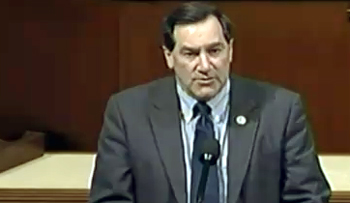 Several of U.S. Senator Joe Donnelly’s provisions to combat the opioid abuse epidemic were signed into law today by the President as part of the bipartisan Substance Use Disorder Prevention that Promotes Opioid Recovery and Treatment (SUPPORT) for Patients and Communities Act. Donnelly spoke on the Senate Floor earlier this month about his bipartisan efforts to address this public health crisis.
Several of U.S. Senator Joe Donnelly’s provisions to combat the opioid abuse epidemic were signed into law today by the President as part of the bipartisan Substance Use Disorder Prevention that Promotes Opioid Recovery and Treatment (SUPPORT) for Patients and Communities Act. Donnelly spoke on the Senate Floor earlier this month about his bipartisan efforts to address this public health crisis.
Donnelly, who has been a leader in the fight against the opioid abuse epidemic, said, “As the opioid epidemic continues to harm families and communities across Indiana and the United States, I’m very glad the President signed the SUPPORT for Patients and Communities Act into law. This gives us more tools to combat this public health crisis. This law includes several provisions I authored, and works to ensure that those providing prevention, treatment, and recovery services in our communities have the resources they need.”
Background on Donnelly’s provisions in the SUPPORT Act:
- A provision based on the Donnelly-Murkowski-Hassan Substance Use Disorder Workforce Loan Repayment Act, which was introduced in March. The provision will incentivize substance use disorder providers to work in areas that have high overdose rates, or a shortage of treatment providers, by providing up to $250,000 in student loan relief in exchange for up to six years of service.
- A provision based on the Dr. Todd Graham Pain Management, Treatment, and Recovery Act, legislation Donnelly introduced with Senator Todd Young (R-IN) in June, which aims to expand the use of non-opioid alternatives in Medicare. It is named in honor of Todd A. Graham, M.D. – a doctor in South Bend, Indiana with over three decades of service – who was senselessly murdered in 2017 for refusing to prescribe an opioid to a patient.
- Two other Donnelly-Young provisions, based on their bipartisan efforts to encourage the development of non-addictive or opioid sparing treatments. They aim to help bring non-addictive pain medications and treatments to patients more quickly and to help clarify how the FDA approves treatments that reduce the need for opioids.
The CDC found that 1,840 people died in Indiana as a result of an overdose in 2017, an 18 percent increase compared to 2016 and a 37 percent jump over 2015.
Over the last several years, Donnelly has successfully pushed for increased federal resources to combat the opioid epidemic through prevention, treatment, and recovery services:
- In April 2018, Donnelly welcomed a $10.9 million federal grant for Indiana that came through the bipartisan 21st Century Cures Act that Donnelly helped enact. This was in addition to the $10.9 million in grant funding that Indiana received in April 2017 through the Donnelly-supported 21st Century Cures Act.
- A number of measures that Donnelly either introduced or supported to combat the opioid abuse epidemic were included in the bipartisan government funding bill that became law in March 2018.
o The bill included funds to support the addiction treatment workforce through National Health Service Corps, which Donnelly advocated for as part of his Strengthening the Addiction Treatment Workforce Act, bipartisan legislation he introduced with Senator Lisa Murkowski (R-AK). That funding will help recruit more substance use disorder providers to serve in underserved communities.
o The bill also included $4 billion in funds to combat the epidemic through prevention, treatment and recovery programs, which Donnelly has repeatedly supported, including in February’s bipartisan budget agreement.
- In February 2018, Donnelly welcomed the U.S. Department of Health and Human Services (HHS) approval of Indiana’s Medicaid waiver extension application. The approval will allow Indiana to enhance HIP with up to $80 million in annual federal funding to support efforts to address the opioid crisis.
- In November 2017, Donnelly’s bipartisan bill to help address veterans’ opioid abuse was signed into law by President Trump.
- In 2016, several of Donnelly’s provisions were signed into law that would expand prevention and treatment programs.












